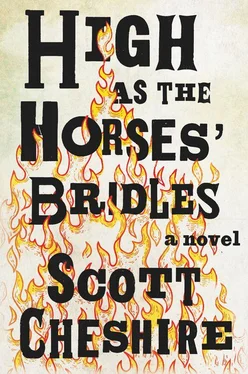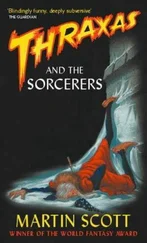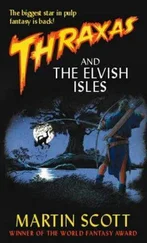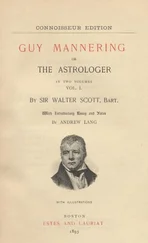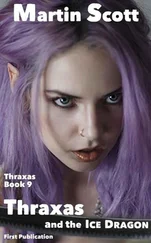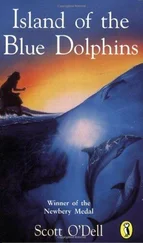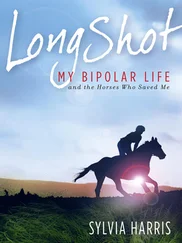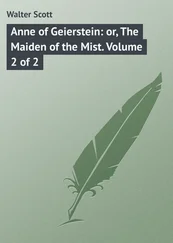“You remember the Montgomerys who moved back east? We had business.”
“Yes sir.” The youngest Montgomery boy had shown Orr how to whittle.
“They was like these but different. Catholics. Same thing, but different. At least they had enough sense to keep to themselves and never come knocking.”
Orr’s bones ache, and he thinks of dead pigs, and horses gone, and of his sleeping and buried mother. All of them in one place. He’s warm and cold in all different parts of his body.
He says, “God’s here, too?”
“All we need of Him.”
Orr thinks on this. So He’s somewhere else, too, where we don’t need Him.
He looks at the pigs in the yard, his stomach weaseling up in his throat. Mamma’s in a place where we don’t need Him.
His daddy rubs his fingers together. “And I can’t figure why God’d want my corn to dry anyway.”
Orr opens his palm and watches the shrew crawl. His father snaps a broken branch from a hickory and walks off, saying, “Every few years they get together, particulars in bunches, swearing God is particular. All that sort of horse shit. Your mother, she wouldn’t hear none of it.”
The shrew’s fine, just fine. Get the jars on the wagon pull, and bed the sow.
A blond woman passes along in the back of a flat wagon. She stares about, looking lost, misplaced. Her face is long and blank. She reaches out a hand toward Orr. She’s reaching. He wants to take it, not sure why.
His father says, “Give me any tulip tree, a hundred feet high, and I’ll bow down like any one of them.” His father waves at the path. “Wave goodbye, Orr. They won’t be back for a long while.”
Orr waves. His father tosses a stone. The bats fly over, screeching, changing positions in the trees.
His father says, “Just like them, moving in bunches. What Kentucky needs is independent persons. You, me, and like your mother was.”
A wagon stops and the driver tips his hat to the boy. The driver says, “Get on now.” He smacks the resting horse’s back. “I said get on!” But the horse stands still with his eyes bewildered, and looking backward, spying on Orr and what lies in his palm.
A thin switch snaps backward, comes down with a cleaving thwack. The driver shouts, “Get on!” And the horse snarls and buckles from the switch, rearing slightly, then falls forward into a reluctant trot.
Orr buckles, too, and is sure he smells the burning stripe on the horse’s hide. His father’s voice comes from behind him.
As the smell of cane char wafts from the river.
The black sow watches from the hill.
She’s fat and she’s proud, lifting up her gray snout, her black belly swaying as she moves. She’s queenly there against the sky, the biggest of the lot. The oldest one of all. Her tail curls up in silhouette. A hot sick stirs in Orr’s stomach. He shivers, heaves, and vomits. Not much, but it empties him. He wipes his mouth and spits. He cries some, but makes sure his daddy can’t see. He dries his eyes, and opens up his palm. He presses the blade to his own soft neck, looking down there at the baby shrew. He presses hard, but does not break his own skin. It hurts. It’s not that he’s just afraid of killing, but also of what lies beyond the act, and he can’t seem to figure it. He pulls the blade away, and puts it back in his pocket. He sets the shrew down in the grass. He walks across the path toward the black sow grazing in the dark.
* * *
It’s early morning and a cold blue canopy stretches over the farm. The hogs are asleep in the yard. With a deep breath, Orr walks toward a large oak tree, dew dripping from the prickly browning tubers of a cancer root growing at the base. A dog barks, and Orr says, “Be quiet.” A good sleep, but he’s woken with a kindling in his chest, the kind of brittle breathing that comes with a slow-breaking fever. He snaps off a piece of the root and rubs it against his neck, at the same place he’d pressed with his blade last night. He walks toward the barn, itching at his heavy shirt and wiping sweat from his brow. “Wet morning,” he says to the dog. “Think she’ll rain?” He takes a piece of ham from his pocket, bites it, and throws the rest into the grass.
He hears the wooden clatter of a passing wagon but he refuses to look, afraid he might see the woman’s face again. He reaches up and pulls at the heavy barn doors.
It’s dark inside and the air is chilled and still. He walks along toward the back table, hay grass snapping underfoot. The black sow grunts and snorts, a few piglets asleep there at her teats. He looks away from her. A subtle light is bleeding through the clapboard slats, and the chickens are waking. Beside is the soap table. All empty now, every last bar for sale. The barrel beside it filled with ash for making lye. He takes hold of a long spade and pushes back open the doors. Morning coins of sun blink between the oak leaves and cast bright flashes as he walks toward the river. Horses are coming, but Orr won’t look to the road.
He stabs at the earth by the bank rocks, digging, sweat gathering over his eyes until he strikes a hard surface. He presses the spade against the side until he can wedge the point beneath it. He presses with his slight weight until the object comes loose, breaking through the soil like a small coffin. His daddy’s been gone for hours already. He never gets to leave the farm.
He pulls the old luck jar from the ground and wipes away the soil from its bellied surface. The molded shape of a man’s bearded face stares back from the jar, his hard clay beard uncoiling, painted and covering one full side of the jar. A cork has been stuffed forcefully into the opening and seems almost fused to the jar. He studies it, turning the thing in his hands, and wiping the bearded face clean. He wonders how such a thing truly works. His father once told him they used to get made by witches. But not anymore. Anyone can make one, as long he believes, if he truly believes. Call it magic, luck, or religion, boy, it’s God in a bottle and it works. The air still tastes some of chalky cane char. The bare and burnt stalks naked beside him. He sees clearly through the canebrake now. No place for hiding anymore. Their luck has been good since Mamma died, when the raiders came sneaking from behind the canebrake. They put a knife through her belly, left her lying on the bed. His daddy found her. He told Orr not to come any closer. His daddy pulling the petticoat back in place … You have to feed your luck, Daddy always says, like anything else alive. So they bury a new luck jar and get rid of the old one every time after burning the canebrake.
He tosses the jar into the river and watches it bob and jerk with the current, disappearing downstream, wishing the water good luck as it goes. Time to make and bury a new one.
He walks back around the barn to the doors.
The barn interior is more visible now with light stealing in between wallboards. Smoky with sunlight and brown shadow, flecked with swimming dust and yellow grit. He walks to the soap table and, kneeling, reaches under. Only four empties left. He picks the smallest of the four, an oblong jar with a greenish stain on the surface of the carved bearded face, wipes it clean of hay dust, and takes the fire tongs from a hook on the wall and sets them on the table. He looks around at the floor of the barn until he spies a mushroom lump of cow dung. With his blade he slices and lifts a small piece. Then he presses and maneuvers the piece into the open mouth of the jar, ridding his blade of cow dung like butter from a knife. He looks back and forth, side to side, in the barn.
Feathers.
He reaches over the chicken fence, takes hold of a hen, and pulls a grab of feathers from her back while she squawks and kicks out her feet. He drops the hen and bunches the feathers, slipping them easily in the mouth of the jar. The jar is warm in his hands and a plume of stink wafts upward, the dung cooking some on the bottom surface. He wipes sweat from his brow, spits into the jar, and sets it beside the tongs on the table.
Читать дальше
